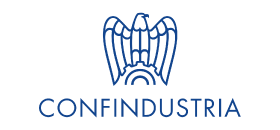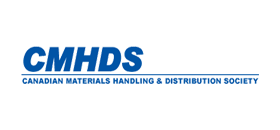

“Your automated warehouse changed my business life!” For an entrepreneur, there are results that, as told by old advertisements, are priceless: a client that expresses their satisfaction is one of these. It’s certainly this way for Franco Togni, Founder and President of Automha in Azzano San Paolo (BG), a company that, in nearly 40 years of activity, knew how to become one of the protagonists of intralogistics automation, in Italy and abroad, also within particularly challenging emerging markets like India and, in general, the Asian continent. It was actually an entrepreneur from India that said the above quote: a phrase that is much more than recognition of how well a project has gone since it indicates a point of no return in the evolution of a business and the management of processes and the awareness that, to facilitate it, was precisely the introduction of new technologies that made the logistics system more efficient.
Focus on the textile market “We have been operating in India for over 15 years and, in the country, we’ve installed a total of 45 automated warehouses of various types, mainly auto-sufficient. In our case – explains Togni – the focus is on the textile market, from the string to the final fabric, an atmosphere of true excellence in the local economy that finds openings in the Western markets, but we signed a collaboration with companies active in the production of paints and rubbers”. It seems strange to think about, but, even in a country that contains 1.3 million inhabitants, the most powerful driving force of business remains word of mouth among the entrepreneurs that, at least among the largest, everyone knows; for this reason, the completion of a successful automation project is the best business card. “The entrepreneurial capacity of Indians is incredible, and the commercial negotiations are exhausting. The positive side, however, is that once the actions are taken with a culture and its particular rhythms, completely different from ours, and trust is achieved with the owner, the relationship that is established is long-lasting and based on a continuous prospect of growth”. The complexity of the projects Automha manages confirms it: “In India, we are faced with numbers that, at least for us, are unequaled by any part of the world. There are clients that installed even 10 automated warehouses and currently, after the stop caused by the pandemic, the perceived rise is huge, as is the desire to invest”.
A magnifying glass Franco Togni’s words give reestablish the Indian textile market as a magnifying lens able to power and exasperate situations and dynamics to which they are used to. First of all, the numbers – of the sizes of companies, true villages that employ thousands of people, and of the production rhythms, that go at 24 hours a day, 365 days a year -, but also the dynamics. “When a company implements automation, it must change its mentality and approach to managing business processes. It’s a change that becomes a revolution in a context where the availability of labor is very high and inversely proportional to its costs and where manual loads transport and handling activities too, like ground floor storage, are the norm.” Therefore, automation isn’t often implemented, or at least not alone, to optimize the cost/efficiency relationship of processes, but more so to improve them, conserve the product quality, and increase the level of service and speed of response, in line with the standards of the Western purchasers. The culture of automation In this context, Automha’s task is to accompany the client through the change, one step at a time. “The typical request that we are called upon to complete – explains Togni – regards the construction of auto-sufficient warehouses of high storage capacity (the tallest created is 39 meters high) able to take advantage of every inch of space to absorb the constant incoming production in the face of a demand that arrives in waves and has peaks and dips. First, however, it is necessary to carry out a correct read of flows along the internal and external chain and the work of our analysts is crucial. At the same time, it is important to offer a 24/7 service and support internal personal training that makes the client autonomous in managing and maintaining the order of the system. In other words, it is necessary to bring the culture of automation.” A culture that, like a waterfall, will inevitably influence other areas of production, improving the quality standard of the product and of the load units.
AUTOMHA S.p.A. – Headquarters
Via Emilia, 23 · 24052
Azzano San Paolo
Bergamo ITALIA
Tel: +39.035.45.26.001 – Fax: +39.035.45.26.050
E-mail: automha@automha.it
AUTOMHA IBÉRICA S.L.
Avenida Alps, 4808940
Cornellà de Llobregat
SPAGNA
PH +34 935216359
E-mail: iberica@automha.com
AUTOMHA INDUSTRIES CO.LTD
15 Sanhe Road – Lu Du Town
215412 Taicang City – Suzhou – Jiangsu Province
P.R. CINA
PH +86 512.5320.7802
E-mail: china@automha.com
AUTOMHA INDIA
702 Damji Shamji Business Galleria
L.B.S. Marg. – Next to Toyo House – Kanjur Marg
WestMumbai – INDIA
PH +91022.257.81.231.32
E-mail: americas@automha.com
AUTOMHA AMERICAS AUTOMATION CORP.
1300 South Service Rd.
Oakville – Ontario
L6L5T7 CANADA
PH +1 855.725.578.6
E-mail: americas@automha.com
Sito: https://automhaamericas.com/
AUTOMHA AMERICAS AUTOMATION LLC.
402 Vulcan St
Ste 100
Buffalo, NY 14207
E-mail: americas@automha.com
Sito: https://automhaamericas.com/










